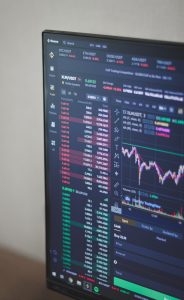Forex reserve, also known as foreign exchange reserve, refers to the amount of foreign currency or assets held by a country’s central bank or monetary authority. These reserves are typically denominated in US dollars, as it is the most widely accepted currency for international trade.
The primary purpose of forex reserves is to provide a buffer against external shocks and to maintain the stability of a country’s currency. In times of economic uncertainty or crisis, forex reserves can be used to support the value of the domestic currency by buying it on the foreign exchange market. This helps to prevent a sudden devaluation or depreciation of the currency, which can have negative consequences for the overall economy.
Forex reserves can also be used to finance imports and to service external debt obligations. By holding a significant amount of foreign currency, a country can ensure that it has the necessary resources to pay for imports and meet its international financial obligations, even in times of economic difficulty.
The size of a country’s forex reserves can have a significant impact on its economy. Countries with large reserves are generally viewed as more financially stable and less vulnerable to external shocks. This can attract foreign investment and help to boost economic growth.
On the other hand, countries with low forex reserves may be viewed as more vulnerable to economic instability and may struggle to attract investment. A sudden depletion of reserves can lead to a currency crisis, which can have far-reaching consequences for the domestic economy.
In addition to its impact on the domestic economy, forex reserves can also have implications for global financial markets. Large-scale intervention by central banks to support the value of their currency can have a ripple effect on other currencies and may lead to increased volatility in the foreign exchange market.
One example of the importance of forex reserves can be seen in the Asian financial crisis of the late 1990s. Many countries in the region, including Thailand, Indonesia, and South Korea, experienced a sudden depletion of their forex reserves, which led to a sharp devaluation of their currencies and a severe economic downturn.
In response to the crisis, the International Monetary Fund (IMF) provided emergency loans to these countries to help replenish their forex reserves and stabilize their currencies. The crisis highlighted the importance of maintaining adequate forex reserves as a safeguard against external shocks and underscored the need for international cooperation to address financial crises.
In conclusion, forex reserves are a critical component of a country’s economic stability and can have far-reaching implications for both the domestic economy and global financial markets. Maintaining adequate reserves can help to ensure a country’s financial stability and attractiveness to foreign investors, while a sudden depletion of reserves can lead to economic instability and currency crises. As such, policymakers must pay close attention to their country’s forex reserves and take appropriate measures to ensure their adequacy and sustainability.





